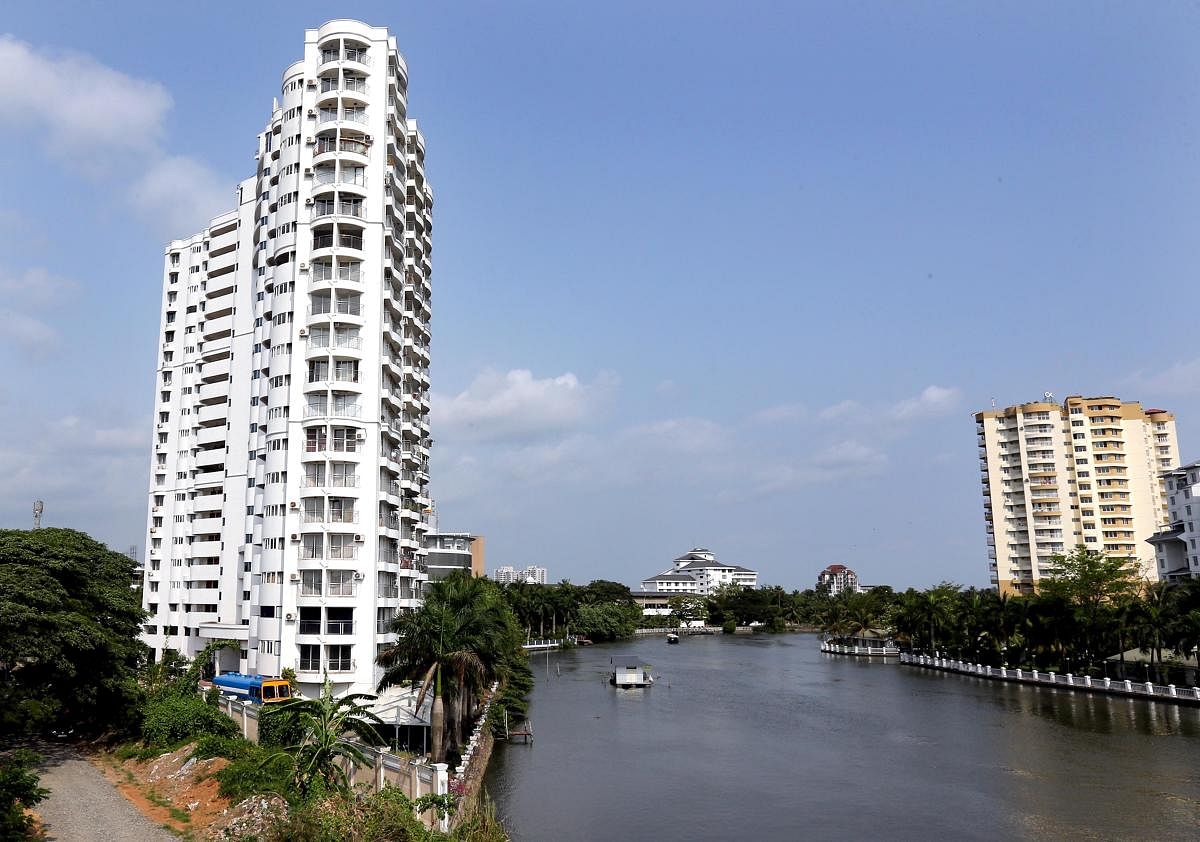India’s real estate sector is witnessing a prolonged slowdown since many of the big realtors have been facing the wrath of legal action due to inordinate delay in delivering possession of flats to the home buyers, diverting of funds from one project to another, siphoning of funds, giving poor quality infrastructure etc.
There have been instances of large scale duping by realtors. In the absence of regulatory grip over their activities, thousands of home buyers are left in the lurch. The hapless homebuyers kept paying EMIs for the home loans. Many of them had spent their life savings on the purchase of the home.
The recent past has witnessed many high profile insolvency proceedings before National Company Law Tribunal (NCLT) at the behest of several real estate and housing development companies. Once the application for insolvency resolution is admitted, the moratorium period under Insolvency and Bankruptcy Code, 2016 (IBC) comes into effect.
Due to the operation of such a moratorium period, the petitions of home buyers get abated. This legal lacuna renders home buyers remediless. Having realised the difficulties faced by the home buyers, the Union government brought an amendment to the IBC so as to treat the home buyers as financial creditors under the Code.
Under Section 5(C) of the IBC, a financial creditor is “a person to whom a financial debt is owed and includes a person to whom such debt has been legally assigned or transferred”. Out of many criteria which constitute a financial debt under Section 5(8) of IBC, the money deposited by the home buyers with the builders against proposed flats did not constitute a financial debt. This kept the home buyers bereft of recourse in the insolvency proceedings against the financially distressed companies. They had to resort to the legal remedy available to other financial creditors under Section 7 of the IBC (the initiation of Corporate Insolvency Resolution Process by a Financial Creditor before the NCLT).
However, the IBC (Second Amendment) Act, 2018 inserted Section 5(8)(f) which provides that any amount raised from an allottee under a real estate project shall be deemed to be an amount having the commercial effect of a borrowing.
The term amount having the commercial effect of borrowing would be deemed as financial debt under Section 5(8)(f) of the IBC. The purpose behind such re-classification is to enable homebuyers to participate in the insolvency resolution process in a constructive manner. Such reforms sought to redress the ambiguous status of the home buyers which arose in many cases.
As many as 200 realtors challenged the amendment before the Supreme Court on the ground that the classification of home buyers as financial creditors is unconstitutional and the home buyers can be treated as operational creditors and not financial creditors since advance payment for flat allotment cannot be treated as financial lending. They argued that such an amendment would amount to a violation of Article 14 and 19(1)(g) of the Constitution.
The Apex Court observed that the amendments to the Code were based on the reports of the Insolvency Law Committee, prepared against the backdrop of mass-scale deceit of home buyers by unscrupulous realtors.
The apex court in Pioneer Urban Land and Infrastructure Ltd and Anr vs Union of India held that such amendment to the IBC does not offend Article 14 and 19(1)(g) of the Constitution and the amendments were based on the commercial wisdom of the legislature. It held that home buyers fit into the definition of financial creditors, since, in a real estate project, the home allottees are vitally concerned about the financial health of the corporate debtor, as otherwise, it will bring the project to stand still.
The other options like interest for delayed delivery and compensation for deteriorating quality of construction cannot be recovered from the realtor who is financially distressed.
The home buyers individually finance for the purchase of the flats and can be treated as financial creditors at par with others like the debenture holders. Similarly, the advance payment made by a home buyer is not to be treated as loan as they expect flats in return of such advance payment and not interest or repayment.
Thus, the entire bunch of petitions filed by different realtors was dismissed by the apex court upholding the constitutional validity of the said amendment to the IBC.
Landmark judgement
After this landmark judgement, aggrieved home buyers can now resort to NCLT, National Consumer Disputes Redressal Commission and Real Estate (Regulation and Development) Act, to seek relief at their options.
The court also held that the RERA has to be read harmoniously with the Consumer Protection Act and IBC. In case of conflicts, the provisions of IBC shall prevail. The intent and purpose of the Code was never to liquidate the real estate companies but to restructure the financially distressed realtors with a proper resolution plan to correct the defaults.
However, such an amendment to the IBC sans corresponding amendments in other statutes like the Consumer Protection Act and RERA will open a Pandora’s box for litigation explosion. There is no clarity as to how to treat the financial institutions who want to step in as allottees by invoking their rights as lenders in case the homebuyers default in repaying the loan taken from them for purchasing the flats.
Similarly, there is ambiguity on who are the home buyers (buyers of each phase separately or buyers from any phase and any RERA registered phase) who can invoke the Corporate Insolvency Resolution Process, especially in case of large projects having multiple RERA registrations or different phases of construction.
(The writer is an advocate practising in the Supreme Court)
